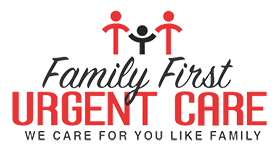 Healthcare is not one-size-fits-all. Each patient brings unique cultural, linguistic, and personal factors to their healthcare experience. Recognizing and responding to these differences is at the heart of cultural competency in healthcare. For urgent care centers, where quick, accurate communication is critical, cultural competency ensures all patients receive respectful, inclusive, and effective care.
Healthcare is not one-size-fits-all. Each patient brings unique cultural, linguistic, and personal factors to their healthcare experience. Recognizing and responding to these differences is at the heart of cultural competency in healthcare. For urgent care centers, where quick, accurate communication is critical, cultural competency ensures all patients receive respectful, inclusive, and effective care.
What is Cultural Competency in Healthcare?
Cultural competency refers to the ability of healthcare providers and systems to deliver care that meets the social, cultural, and linguistic needs of patients. It goes beyond awareness of cultural differences and involves adapting care practices and policies to respect patients’ diverse perspectives and experiences.
Organizations like the Agency for Healthcare Research and Quality (AHRQ) emphasize that cultural competency enhances patient-provider communication, builds trust, and leads to better health outcomes. Improved cultural competency is especially crucial in urgent care settings where time constraints and medical urgency might otherwise amplify barriers to understanding.
The Impact of Cultural Differences on Patient Care
Culture influences everything from how patients perceive illness to the treatments they are willing to accept. Miscommunication due to cultural differences can lead to unmet healthcare needs, dissatisfaction, or worse, poor health outcomes.
For example, language barriers can prevent patients from effectively communicating symptoms or understanding a diagnosis. Similarly, cultural beliefs about medicine and treatment can affect adherence to medical advice. A patient who avoids certain treatments due to spiritual beliefs may feel misunderstood if their perspective is dismissed or overlooked.
Strategies to Enhance Cultural Competency in Urgent Care
To provide inclusive patient care, urgent care centers can adopt several strategies that reduce barriers for diverse populations while building trust and understanding. Here are actionable approaches for improving cultural competency:
1. Invest in Staff Training
Education is a vital first step. Training programs can help healthcare providers recognize implicit biases, develop cross-cultural communication skills, and gain insight into how cultural factors influence health behaviors. The National Center for Cultural Competence (NCCC) recommends integrating cultural competency education into ongoing staff development to sustain long-term improvements.
2. Offer Translation and Interpretation Services
Language barriers are one of the most frequent obstacles faced by patients from different cultural backgrounds. Providing access to professional medical interpreters and offering translation of critical documents ensures that patients can fully understand their care. This simple yet powerful step enhances trust and prevents miscommunication.
3. Engage with the Community
Collaborating with community leaders and cultural organizations fosters deeper understanding and respect for the specific needs of local populations. From hosting health workshops in diverse areas to forming advisory panels that represent different cultural groups, such partnerships strengthen the connection between urgent care facilities and the communities they serve.
4. Diversify the Workforce
A diverse staff is an asset in culturally competent care. Teams that reflect the demographics of the patient community can better understand and empathize with patients from various backgrounds. Diversity also encourages a broader exchange of ideas and cultural perspectives within the organization.
5. Adapt Clinical and Operational Practices
Urgent care centers can make structural changes to accommodate cultural differences. For example:
- Flexible visitation policies to honor family-driven decision-making in certain cultures.
- Dietary considerations for patients fasting due to religious observances.
- Culturally sensitive signage to create an inclusive and welcoming environment.
6. Use Culturally Appropriate Communication Tools
Tools like tailored decision aids or patient education materials can help bridge cultural gaps. These tools should not only translate medical terms but also present culturally relevant scenarios and solutions.
7. Address Implicit Bias
Every healthcare provider has unconscious biases that can affect how they interact with patients. Recognizing these biases is a foundational step toward equitable care. Tools like the Implicit Association Test (IAT) can help individuals reflect on their personal biases and take steps toward mitigating them.
Why Cultural Competency Matters in Urgent Care
Urgent care centers are often the first point of contact for patients seeking immediate attention. Cultural competency ensures that this critical moment of care promotes health equity and reduces disparities in treatment. According to Roseman University, embedding cultural competency into healthcare practice results in better treatment adherence, improved communication, and overall better outcomes for patients.
When urgent care providers prioritize inclusive care, they not only empower patients but also build trust within their communities, laying the foundation for healthier relationships and outcomes.
Learn More About Family First Urgent Care
At Family First Urgent Care, we are committed to delivering compassionate, culturally competent care to everyone we serve. Whether you are seeking treatment for an urgent health issue or exploring preventative care, our team strives to meet the unique needs of each patient.
To learn more, visit www.familyfirsturgentcareconroe.com or call (936) 235-2825.
Experience personalized, inclusive healthcare designed with you in mind. At Family First Urgent Care, we value every individual and their unique story. Together, we can create a healthcare experience that truly puts your family first!
- Cultural Competency in Urgent Care: Providing Inclusive Patient Care - April 11, 2025
- Urgent Care for the Elderly: Specialized Services for Senior Patients - March 24, 2025
- Urgent Care for Mental Health: Addressing Immediate Needs - February 17, 2025



